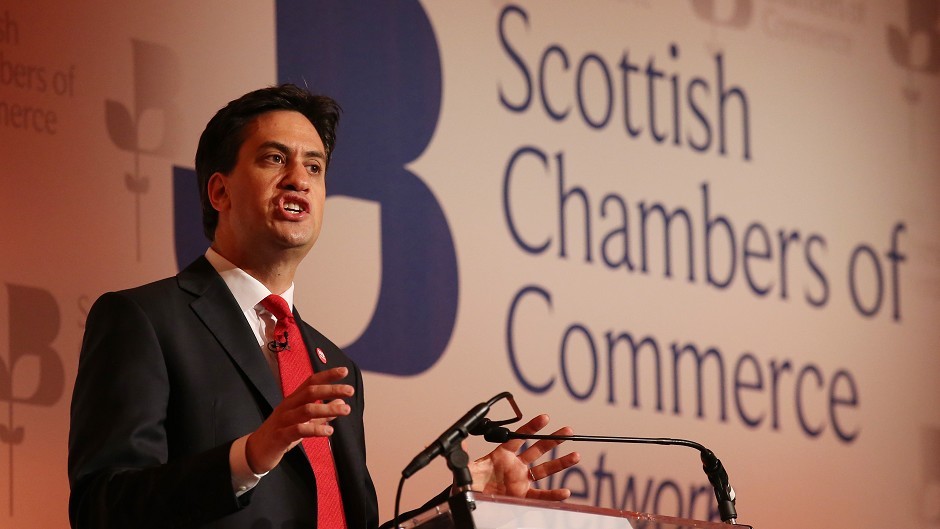Labour leader Ed Miliband has claimed the risks to the UK of sharing the pound with an independent Scotland far outweigh the benefits.
Scotland’s share of the UK debt would amount to about £120billion – around £5billion a year in repayments – but the Scottish Government has threatened to withhold that if the UK does not agree to a formal currency union.
Scottish Finance Secretary John Swinney argued Westminster’s refusal to consider sharing the pound would “crumble after a Yes vote” in the face of a higher UK debt, higher costs to UK businesses to trade with Scotland and a potential weakening of the pound due to the loss of Scottish oil and whisky.
He said whichever party was in power after the 2015 general election was not going to risk increasing business costs by £500million, or absolve Scotland of its share of the UK debt simply because it did not want a currency union.
“That, to me, is a ridiculous proposition from the other parties,” Mr Swinney said.
However, Mr Miliband said only 10% of UK trade goes to Scotland and pointed out that the 40% of UK trade that goes to Europe has not compelled Britain to join the euro.
Speaking in Glasgow, he said: “Of course you want to avoid the transaction costs, which is one of the reasons we want the UK to stay together.
“But I’m afraid the cost of a currency union without political union, without a fiscal union, without banking union, are costs that will be too high for the UK.”
Alistair Darling, head of the pro-union Better Together campaign, said: “Having been the chancellor, I would say if you have got a budget of about £700billion, you have to be sort of phlegmatic about £5billion.
“But the bigger question you would have to ask yourself is, would it be in the interests of either Scotland or the rest of the UK to enter into this arrangement?
“If you look at it from a Scottish point of view, which is how I am looking at it, why would you want to get yourself into a situation where to be in a currency union you would have to reach an agreement on your budget?”
SNP Treasury spokesman Stewart Hosie said: “The No campaign’s scaremongering on the pound is crumbling.”
He said Mr Miliband had “exposed the fundamental flaw in the No campaign’s argument which is that they cannot say no to continuing to share our pound without saying that they would make voters in the rest of the UK pay debts that would otherwise be paid by an independent Scotland”.
